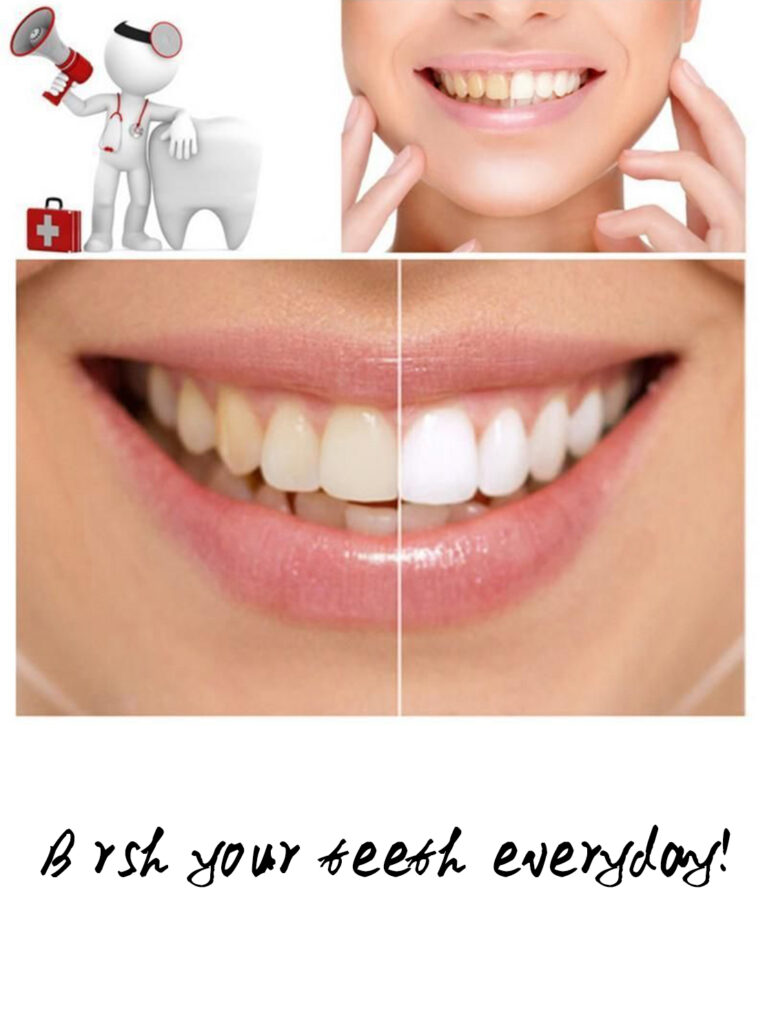Gum disease and cavities are just a few of the consequences of poor oral hygiene, as are periodontitis, gingivitis, and loss of teeth. Fortunately, almost all of these issues can be avoided with basic oral care, such as brushing and flossing teeth properly and regularly. Put yourselves at risk of dental decay if you don’t brush your teeth thoroughly every day.
Early indicators of deterioration include hypersensitivity or discomfort in your teeth, as well as soreness when you chew. Carbohydrates in food and drinks give fuel for cavity-causing germs when they’re not removed from the teeth constantly. Within twenty minutes of eating, these microorganisms might start producing plaque on your teeth.
When should you clean your teeth?
Bacteria are almost constantly present in the mouth, so brushing frequently and minimizing sugary snacks can help to prevent cavities. Brushing your teeth twice a day is recommended in the morning when you get up and before going to bed. Dr. Mathew Baby of Tooth Fairy Dental Clinic in Ernakulam states that “Because the natural healing process in our teeth slows down at night, it’s critical to cleanse and eliminate any leftover bits of food from our teeth before going to bed.”
This is why it’s nice not to eat anything afterward. Also, always wash your teeth in the morning as you wake up, to remove any bacterial growth during the nighttime.
How should you brush your teeth?
Instead of simply swiping toothpaste around your mouth, make sure you remove as much plaque and food as possible. Apply a pea-sized quantity of toothpaste to the exterior and interior tooth surfaces in a gentle circular motion. Brush the chewing surfaces of your teeth in a gentle back-and-forth motion.
Brush your teeth for at least two minutes twice a day with fluoride toothpaste to keep your teeth and mouth healthy. Give each quarter of your mouth thirty seconds. Visualize a tooth as having five surfaces as a basic tip including the top, back, and front by doing the following:
Ø Brush your teeth with the toothbrush head, then bend the bristle ends to a 45-degree angle against the gum line. Brush all the edges of each tooth in tiny circular motions many times.
Ø Brush both the top and bottom sides of each tooth with the bristle slanted against the gum line.
Ø Apply the same technique to all of your teeth’ interior surfaces.
Ø Brush your teeth in the chewing areas.
Ø To cleanse the inner surface of your front teeth, angle the brush vertically and use the front part of the brush to create many little round strokes.
Ø Brushing your tongue removes germs from your mouth and aids in refreshing your breath.
Ø When you’re done brushing, attempt to spit out the toothpaste and avoid rinsing your mouth with water. Keeping toothpaste on your teeth provides additional damage over time.
Not only does good dental hygiene maintain your teeth, but it also plays a role in preventing more severe health problems and promoting overall good health and confidence.
The advantages of good dental hygiene are listed below:
ü It helps eliminate foul breath. Have you ever given a mint to a coworker or loved one so you could talk to them in tight spaces? Bacteria in your mouth generate bad breath, or halitosis, which eventually turns into plaque. The plaque will be removed and calculus will not build on your teeth if you brush and get frequent cleanings.
It’s also a cheap and efficient technique to get rid of junk and bacteria while also keeping your breath smelling good.
ü Cavities and gum disease can be avoided. The fundamental protection of cavities and gum disease is the most evident benefit of excellent oral hygiene. Brushing two times a day and flossing once a day can help to prevent these common tooth issues. Plaque build-up around your teeth causes gingivitis, or periodontitis, the inflammation of the gums, and the initial stage of gum disease.
It might cause inflamed gums and bleeding teeth during brushing. Plaque is a buildup of food and germs that form in everybody’s mouth and must be removed regularly to maintain your mouth healthier. Plus, brushing your teeth with toothpaste is the most effective way to apply minerals and other desensitizers.
It prevents the onset of more serious illnesses. Good dental hygiene contributes to overall health and can help you prevent diseases such as diabetes, heart disease, and dementia. The microorganisms that cause periodontitis are also detected in people with heart disease, according to studies. If bacteria infect your gums, it can spread to your bloodstream, increasing your risk of a heart attack or stroke.
Gum disease might make it more difficult to keep your blood sugar under control. There are two different associations between significant periodontal diseases like diabetes and diabetes. Not only are people with diabetes more likely to develop significant gum disease, but severe periodontitis may also compromise blood glucose management and contribute to diabetes development. Dementia risk is increased by a third when you have poor dental health.
ü Health-care costs can be minimized. Filling cavities or replacement of teeth with dental implants is expensive, but compared to the high cost of treating a whole-body disease like heart disease and diabetes, taking good care of your dental health may save you thousands of dollars in health care expenditures throughout time. Some toothpaste tubes, floss, and frequent check-ups are a tiny amount of money to pay for overall wellness and well-being.
Maintain the brightness of your smile. A dazzling smile is thought to be a vital human expression that may boost your mood, as well as the emotions of others, and offer a sense of positivity. The first thing we notice about someone is their smile, and maintaining your teeth bright is an important aspect of smiling comfortably.
Other lifestyle changes can aid in keeping your gums and teeth healthy and clean.
1. If at all possible, drink water. When mineral water is your primary source of drinking water, you may be missing out on fluoride’s decay-prevention advantages.
2. Keep an eye on your low-carb diet. Low-carb diets, regardless of their popularity, can induce bad breath. Tooth decay can be reduced by eating a well-balanced, dental-healthy diet.
3. Vitamins D and C should be taken regularly. These vitamins aid in the ingestion of beneficial nutrients from parts of the mouth, such as calcium and phosphate, which help maintain the health of the bones and gum tissues. This is a simple approach to keeping your teeth clean and preventing dental problems.
4. Be sure to increase your calcium intake. As you reach the age of twenty, both women and men lose more strong bones than they gain, so it’s critical to replace lost calcium with a daily supplement and calcium-rich foods like green leafy vegetables. These meals will also assist to reduce acid accumulation in the saliva, which can cause dental enamel erosion.
5. Eliminate smoking if possible. Smoking cigarettes is one of the most significant causes of oral aging. And over twenty-two million women today smoke cigarettes, as per the Centers for Disease Control and Prevention. Smoking not only stains teeth, but also prevents calcium absorption by the body and can lead to future fatal conditions like oral cancer. So, give up smoking and reap the health advantages, as well as a gorgeous, wholesome smile.
Even though we may consider our mouth to be separate from various components of our body, the fact is that everything is connected, and a healthy mouth positively affects our overall health. We’re here to help you with any questions or concerns you may have, as well as to get you started on the path to better dental health. So, what are you waiting for? Take control of your dental and general health as early as now!


